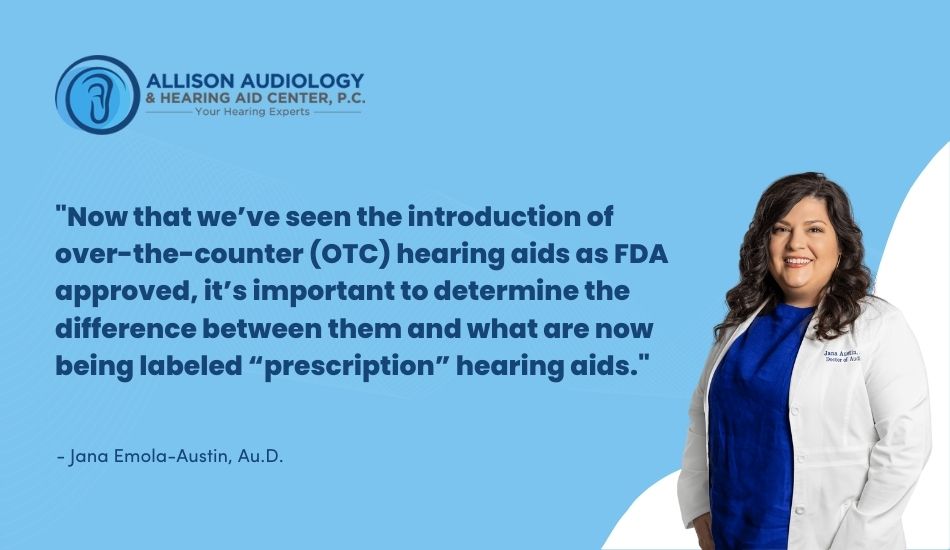There are over 50 million Americans who currently experience tinnitus. Of those 50 million, 20 million have a moderate form of the condition, while more than two million have a more severe degree. It can be constant or intermittent, but it’s always the same – a ringing, buzzing, whirring or whooshing noise that does not have an external cause.
Impact
Due to the diverse nature of tinnitus, there are a few forms that you are likely familiar with; irregular, constant, pulsatile or tonal, chronic, or acute. In the milder cases, people with tinnitus view it more as a distraction; the more severe the tinnitus, the more likely there is to be some quality of life impact.
Quality of life
There are a number of things that also accompany tinnitus. Even the most moderate of cases can have an impact on how someone is able to work or socialize. There are many occasions that people with tinnitus will experience:
- Sleep disturbances
- Irritability
- Frustration
- Anxiety
- Depression
- Distress
- Pain, if the tinnitus is accompanied by hyperacusis
People who experience tinnitus extend beyond just the person, it will often have an impact on family and friends too. A knowledgeable and large support network is a must. Because tinnitus has its own noise, which in some cases will be a loud ringing, it can cause sensitivity to other noises, which makes socializing undesirable at times.
Improving quality of life
If you are looking to improve the quality of life, as a person with tinnitus, there are a number of great things you can do. When you start working with the right audiologist, you will see there is a range of options when it comes to the management of tinnitus.
Hearing aids
The most commonly recommended treatment for tinnitus is hearing aids. Some instances of tinnitus occur simultaneously with hearing loss, and when hearing aids are used, can alleviate the ringing and buzzing. However, even if you do not have hearing loss, these devices can still be beneficial when equipped with masking features to help override the tinnitus sounds you hear.
Tinnitus retraining therapy (TRT)
Another relief method often used in tandem with hearing aids is tinnitus retraining therapy. TRT is a form of therapy that teaches your brain how to override the tinnitus sound you here. This treatment is beneficial because there will be instances when you cannot wear your hearing aids, like in the shower or when going to bed at night, and TRT can help you combat the unwanted noise.
Sound therapies
While this might seem like a pretty broad term, sound therapy has a few focus areas that are shown to have a significant impact on tinnitus. The usage of external sounds to change how a person perceives and reacts to tinnitus. Sound therapy, while it may not cure tinnitus, it may significantly reduce the intensity that a person will register their tinnitus. This can come in the form of a machine that produces white noise, or may be something as simple as running the water or vacuum to block out the tinnitus sounds.
Neuromodulation: This is where a specialized sound is introduced to minimize neural hyperactivity, which may be an underlying factor in tinnitus
Distraction: The use of external sounds to ‘mask’ the sounds of the tinnitus
Habituation: This is a treatment that helps the patient’s brain to reclassify the tinnitus. It will place the tinnitus noise as less critical and become actively ignored. This therapy is more potent over time.
Masking: Finding the right level of noise to partially or totally cover the tinnitus
Lifestyle changes
Tinnitus can also be exacerbated by certain lifestyle choices, whether it’s a hobby or your diet. If you are experiencing tinnitus, your audiologist may recommend the following lifestyle alterations to lessen your symptoms:
- Reducing alcohol consumption
- Quitting smoking
- Lowering your caffeine intake
- Earwax removal
- Proper hearing protection in loud environments
- Changing ototoxic medications
Find the right audiologist for your needs
When it comes to finding relief for tinnitus, there are many choices available. That’s why it’s important you find the right audiologist to address your needs, whether it’s a treatment for tinnitus or a simple hearing test. At Allison Audiology & Hearing Aid Center, P.C., our audiologist is skilled at pairing patients with the solutions that provide them relief. You can call our team today at Houston: 713-827-1767




